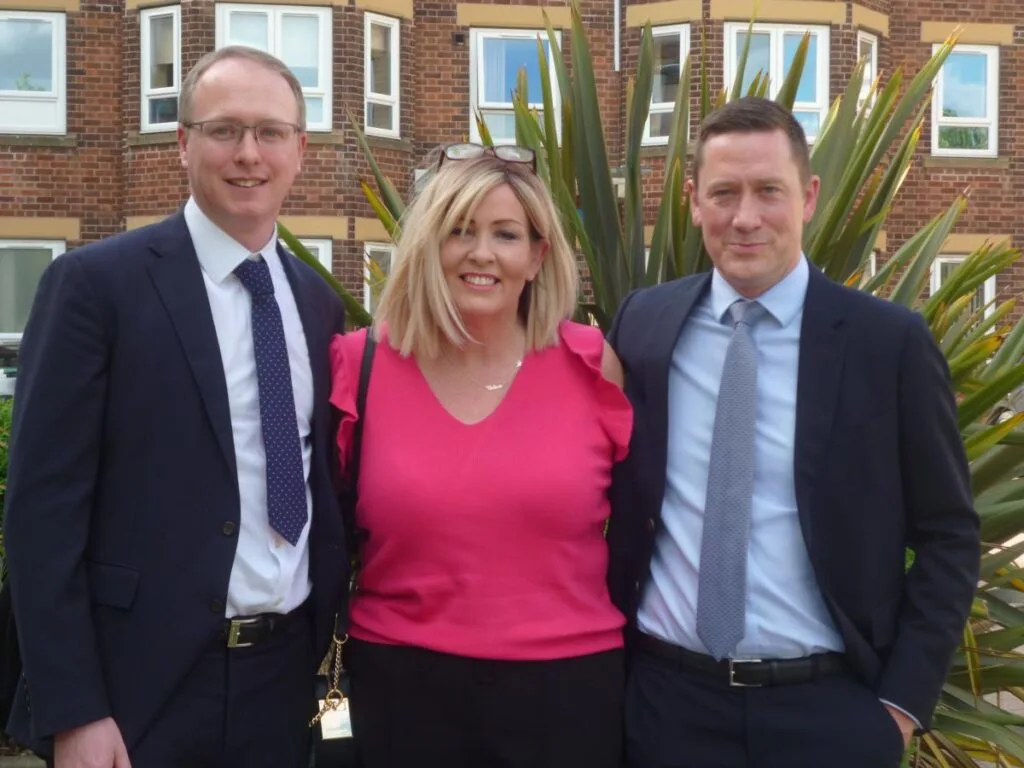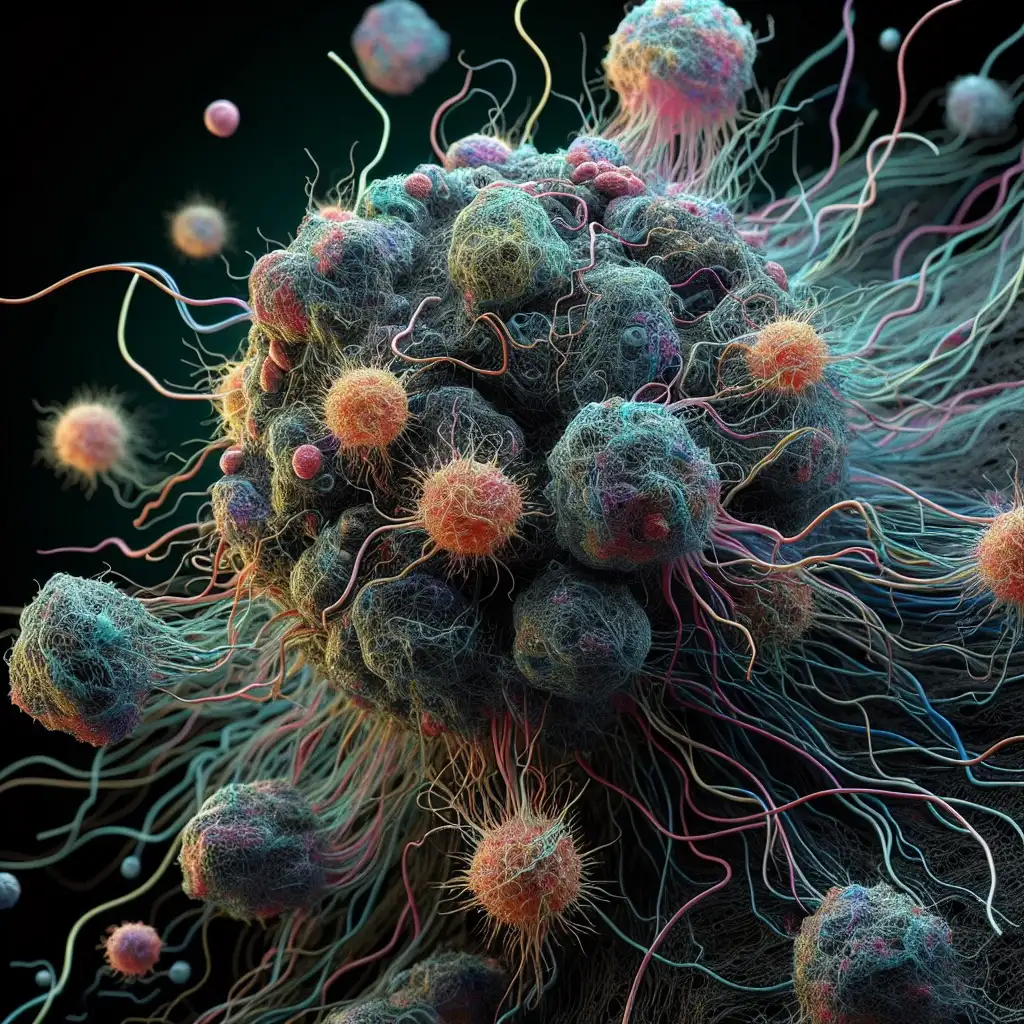In a world where medical statistics often shape our expectations, some stories defy the odds so profoundly that they seem miraculous. Caroline Guy’s journey is one such story—a testament to human resilience, modern medicine, and the power of refusing to accept what seems inevitable.
When a persistent health concern was repeatedly dismissed as merely “part of aging,” Caroline had no idea she was about to face a battle that would consume her life savings, test her family’s strength, and ultimately challenge the very timeline doctors had assigned to her remaining days on earth.
What happens when someone decides that a terminal diagnosis isn’t the end of their story? Caroline’s remarkable path from devastating news to an outcome that stunned even her medical team offers a glimpse into what’s possible when determination meets dedicated care.
Life Turned Upside Down
Caroline Guy spent years struggling with persistent health issues before receiving a life-changing diagnosis. At 56 years old, she began experiencing symptoms that worried her enough to seek medical attention. “I felt sluggish, I just didn’t feel right. My stomach was swollen,” she told Nottingham University Hospitals NHS Trust about her condition in June 2019.
Like many patients facing serious illness, Guy initially received a misdiagnosis that delayed proper treatment. Her doctor in Spain dismissed her concerns, attributing her symptoms to menopause rather than investigating further. Even when she directly asked about the possibility of bowel cancer based on her research of her symptoms, her doctor denied it. “I’d googled my symptoms, and I asked him outright if I had bowel cancer, and he said no,” Guy revealed.
Her health continued deteriorating despite seeking medical help. By January 2020, while visiting her husband, Adam in Saudi Arabia, her condition became impossible to ignore. “I was in pain walking, I looked seven months pregnant, and I woke up one night and was violently sick. I just felt horrendous,” Guy recalled about the frightening escalation of her symptoms.
Adam and their youngest daughter, Gabrielle, recognized the severity of her condition and rushed her to a hospital. After multiple tests and X-rays, doctors delivered devastating news – Caroline had stage 4 bowel cancer that had already spread to her ovaries and liver. Medical professionals gave her just three to four months to live.
Family Faces Harsh Reality

Caroline’s diagnosis hit her family hard. Her husband, Adam, and daughter, Gabrielle, struggled to process the terrible news while supporting Caroline. “When I saw their faces, I thought this is not good. My daughter couldn’t look at me. I couldn’t take it in. I just said, ‘How long have I had it? And ‘am I going to die?'” she recalled of that heartbreaking moment.
“He was still picking our daughter up off the floor—they had to give her oxygen. I can laugh now, but it must’ve been like something from a ‘Carry On’ film,” she said, recalling the emotional impact on her loved ones.
Initially, her family found it difficult to communicate the full gravity of her diagnosis. While Caroline asked direct questions about her prognosis, her family members temporarily shielded her from the complete truth as they grappled with the news themselves.
Despite the grim outlook, Caroline and her family refused to accept defeat. Rather than surrendering to the terminal diagnosis, they resolved to pursue all available treatment options and maintain hope for recovery.
Beginning Medical Battle

By late January 2020, Caroline’s medical team referred her to the head of oncology, who offered a slightly more encouraging perspective. Medical professionals advised her to maintain positivity and avoid researching her symptoms online, which often leads to increased anxiety and misinformation. Although the surgery wasn’t possible immediately due to the advanced state of her cancer, doctors developed a treatment plan combining chemotherapy with Rituximab, a targeted cancer drug.
As Caroline began her cancer treatment, the COVID-19 pandemic started spreading globally, creating additional complications. Despite her vulnerable health status, she made the difficult decision to return to Nottingham, England, to visit her other daughter Hollie.
“It was scary, the thought of coming back to England, worrying would I still get my treatment, because I’d done so well in Saudi, but I had to come back. I had to see my family” Guy shared about her challenging decision. Shortly after arriving in England, she contracted coronavirus, forcing her into self-quarantine for several weeks before she could safely resume cancer treatment.
Treatment Continues Through Pandemic
After recovering from COVID-19, Caroline continued her chemotherapy treatments at Nottingham City Hospital. Early imaging brought positive news – the tumor had decreased in size, showing her treatment had begun working. However, medical professionals still provided a sobering prognosis, estimating she had approximately two years to live.
Caroline refused to accept this timeline, maintaining her determination to overcome the disease completely. “I was heartbroken, I didn’t want to hear a timescale, I was doing really well, I continued with the fortnightly chemotherapy and Cituximae. I had a pump fitted, and I’d go away and have chemotherapy for 48 hours at home,” she said, describing her ongoing treatment regimen.
Despite pandemic obstacles, Caroline faithfully attended all her appointments. She acknowledged to NHS Trust representatives that while COVID-19 made treatments more difficult to access, she remained committed to her cancer fight. The medical staff demonstrated extraordinary dedication throughout Caroline’s treatment journey. Nurses frequently stayed beyond their scheduled shifts to provide care during her treatments, showing remarkable compassion during an unprecedented healthcare crisis.
Rays of Hope Emerge

Caroline’s persistence began paying dividends. New scans revealed the chemotherapy had successfully shrunk her tumors enough for doctors to consider surgical intervention. While surgery still carried significant risks given her condition, Caroline wanted to pursue every possible option to become cancer-free.
“I said yes, please. The only way you can beat bowel cancer is with surgery to remove the primary cause. I knew that if I did that, the cancer might come back, but if it did come back, I would deal with it,” Guy said, explaining her decision to proceed with surgery.
Her medical team transferred her to Queen’s Medical Centre for the operation. Surgeons removed a portion of her bowel and performed a complete hysterectomy to give her the best possible chance of eliminating the cancer.
Caroline recalled the moment she regained consciousness after surgery: “The first person I saw when I woke up was the surgeon who said it had been a really successful operation. He rang my husband himself and spoke to him.” This personal touch from her surgeon highlighted the compassionate care she received throughout her treatment journey.
Moment of Miracle
Following surgery, Caroline underwent additional testing to determine whether the cancer had been completely eliminated. When she returned to the hospital for her results, she received news that seemed impossible just months earlier – her tests were clear. She was cancer-free.
“The surgeon looked at me and said you’ve got no cancer. I said ‘are you sure?’ I just couldn’t believe it. It’s a miracle,” she recalled about this life-changing moment.
After years of battling stage 4 cancer and facing a terminal diagnosis, Caroline experienced the emotional milestone of ringing the cancer-free bell at Nottingham Hospital. This symbolic ritual, performed by patients who complete their cancer treatment, represented an achievement that once seemed utterly impossible.
Caroline transitioned to remission status, with doctors establishing a monitoring schedule of checkups every three months with her oncologist. While no longer actively fighting cancer, medical professionals would continue closely monitoring her health to ensure the disease did not return.
Cost of Survival and Gratitude

Caroline’s fight against cancer came with substantial financial costs. Her initial treatment in Saudi Arabia reached approximately £110,000 ($140,000), depleting her husband Adam’s retirement savings. Without insurance coverage, the couple faced the entire financial burden of her medical care.
Despite the enormous financial expense, Caroline and her family recognized that no monetary value could equal the gift of an extended life. Her husband willingly sacrificed retirement funds for treatment that medical professionals initially believed would only extend her life by months.
Throughout her journey from terminal diagnosis to remission, Caroline developed profound gratitude for the medical professionals who guided her treatment. “I’ve been treated with so much compassion. I’m in awe of these people, and the colorectal nurse Kimberley was fantastic. For the surgeons to say, ‘we’ve got it all, you’re cancer free’—how can I thank them? How can I thank the NHS? Some of the staff are like family, and they have all been wonderful,” Guy said.
“The money it cost for private care – even though it was amazing – it doesn’t touch what I’ve had done here with the NHS, and the NHS gets such a bashing,” Guy remarked, comparing her experiences with different healthcare systems.
Second Chance at Life
While medical intervention proved essential, Dr. Simpson attributed Caroline’s success mainly to her mentality. According to her surgeon, her positive outlook, bravery, and determination throughout treatment significantly contributed to her eventual remission.
Moving forward, Caroline entered a five-year remission monitoring period. During this time, medical professionals would continue surveillance through regular checkups to ensure her continued health.
Caroline’s perspective on life transformed through her cancer journey. Facing mortality and receiving an unexpected second chance renewed her appreciation for everyday experiences. Her story demonstrates how a terminal diagnosis, while devastating, need not always represent the final chapter.
For others facing similar diagnoses, Caroline’s journey offers hope. Her experience shows exceptions exist even when medical professionals provide the grimmest prognosis. Some patients can defy seemingly impossible odds through appropriate treatment, personal determination, and support from dedicated healthcare providers.
Being told you have terminal cancer can shatter hopes for the future in an instant. However, Caroline Guy’s story shows how a positive attitude combined with dedicated medical care can sometimes achieve what initially appears impossible. After years of battling cancer that doctors once thought would claim her life within months, she achieved complete remission thanks to skilled surgeons and her fierce determination to live.



